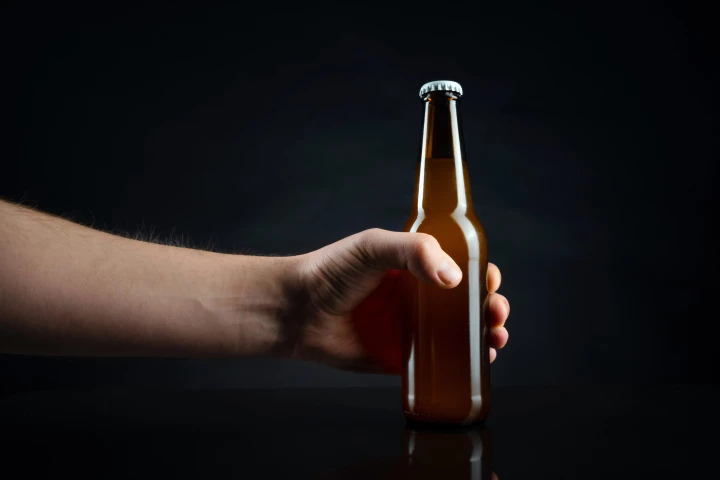University of Southern California
-
Acetaminophen can be a big help to mothers suffering postpartum body pain, but it ain't great for newborn babies. An experimental new lactation pad was designed with that fact in mind, as it measures how much of the drug is present in breast milk.
-
You could compensate for broken speakers by cranking up the volume on others that still work. It turns out that the brain does the same thing when damaged hair cells in the ear lead to hearing loss – and this could be causing your tinnitus.
-
GLP-1 drugs have reportedly changed people's relationship with more than just food, but it's been largely anecdotal. Now, there's evidence that Ozempic blocks alcohol cravings – which could be a game-changer for people who want to cut back on booze.
-
Prostate cancer is usually treated with surgery and radiation therapy, but these can have drastic side effects. A new clinical trial is exploring the safety and efficacy of killing the cancer cells with a blast of steam.
-
A new kind of cancer gene therapy can be remotely activated at a specific part of the body. The team developed a version of CRISPR that responds to ultrasound, and demonstrated how it can be used to clear cancer in mice.
-
Spanning nearly 100 laboratories in 45 countries, a landmark study has, for the first time, shown an association between genetic brain shape and size and the prevalence of neurological conditions such as Parkinson's disease and ADHD.
-
Toxic “forever chemicals” are a major environmental problem, and a growing body of research shows they’re also a major health problem. A new study has found people with higher levels of PFAS in their blood have poorer sleep.
-
A laser-led device that shoots light into the brain to test blood flow and volume can offer instant feedback on a patient's stroke risk and and provide a portable, affordable and non-invasive way for clinicians to make life-saving interventions.
-
Who’s funnier, AI or humans? A new study found that we find ChatGPT-generated comedy funnier than, or as funny as, comedy written by humans, including professional writers. The findings suggest that AI is no laughing matter for the entertainment industry.
-
Eating junk food during the crucial years of brain development impairs memory into adulthood, even when reverting to a healthy diet, new research has found. The impairment is caused by reduction in a neurotransmitter linked to Alzheimer’s disease.
-
Researchers have identified two genetic markers that may explain the link between eating red and processed meat and bowel cancer. Understanding the disease process and the genes underlying it can help develop better prevention strategies.
-
Hospital patients often pick up dangerous, hard to treat infections. An experimental vaccine given on arrival to hospital could protect against a range of drug-resistant bacteria and fungi, by activating a different arm of the immune system.
Load More











